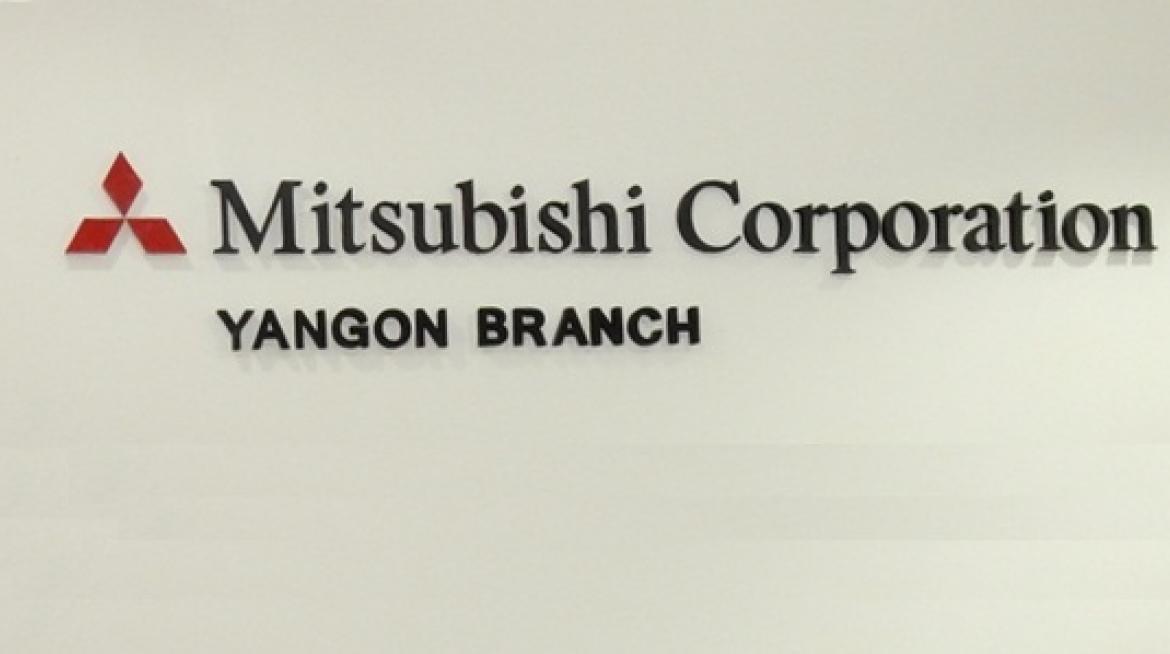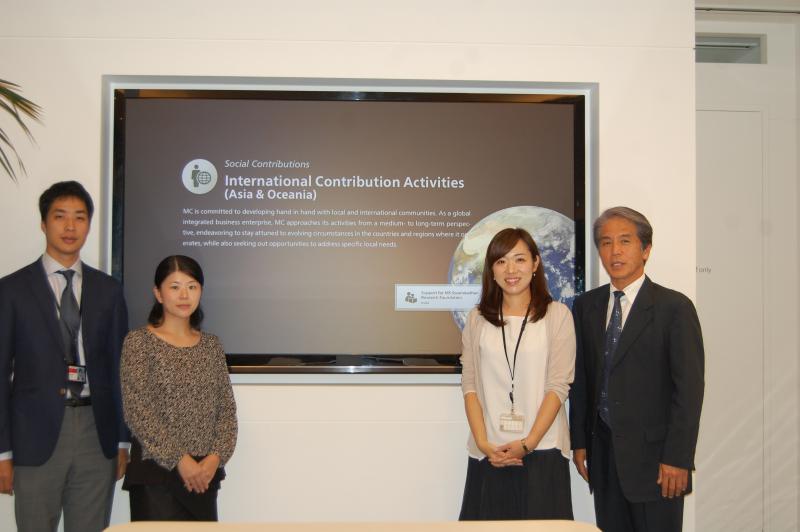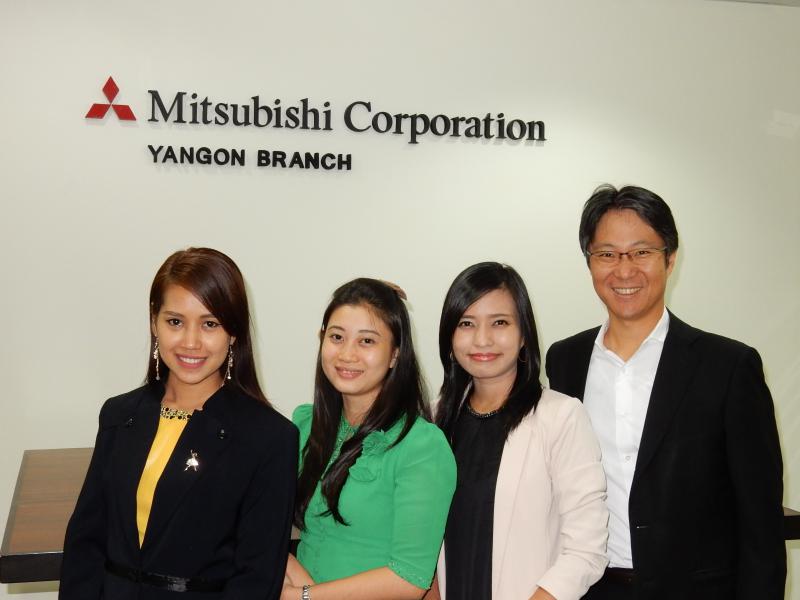
Earlier this year, LIFT diversified its donor base to include a member of the private sector, the Mitsubishi Corporation. For this week's #LIFTDonorProfiles, we invite you to learn more about the company from their Corporate Philanthropy Team.
LIFT: Please tell us a little bit about yourself
The Corporate Philanthropy Team based at the Mitsubishi Corporation Main Office in Tokyo carries out contribution programmes targeted at Myanmar in collaboration with the Corporate Team based at our Yangon Liaison Office, which is familiar with the local situation and needs on the ground.

Since the establishment of an office in Yangon in 1954, we have maintained a presence in Myanmar, thereby contributing to the local economy through trading a range of products such as fibres, food provisions
LIFT: Where does LIFT fit in?
We have been providing scholarships to Yezin Agricultural University for more than 15 years and we donated 50 sets of audio guide equipment and two Mitsubishi pick-up trucks to Shwedagon Pagoda as our corporate social responsibility activities. We believe that agriculture is, and will continue to be, a key industry in Myanmar. This led us to collaborate with LIFT, which has abundant experience in supporting small farmers in Myanmar.
LIFT: What particular challenges do you see for livelihoods development in Myanmar? How do you think these can be overcome?
 We believe that one particular challenge stems from the lack of access to education. The same issue exists in large urban areas as well; however, there are many cases to learn from outside of Myanmar and opportunities to improve livelihoods at school and in the workplace. In villages, however, there are limited chances to come into contact with the latest information. As a result, many people continue to employ inefficient farming methods, making the transition out of poverty even more difficult. Infrastructure development is another major challenge. Dams and waterways for irrigation, refrigerated warehouses and inspection equipment for use when carrying out exports to developed countries are essential for the betterment of farmers’ livelihoods. We understand that proper equipment for plant quarantine exists only in Yangon, thus requiring all fruits and vegetables for export to be brought to Yangon for testing. From this viewpoint, we are supporting construction of agricultural training facilities in the Dry Zone, as another project.
We believe that one particular challenge stems from the lack of access to education. The same issue exists in large urban areas as well; however, there are many cases to learn from outside of Myanmar and opportunities to improve livelihoods at school and in the workplace. In villages, however, there are limited chances to come into contact with the latest information. As a result, many people continue to employ inefficient farming methods, making the transition out of poverty even more difficult. Infrastructure development is another major challenge. Dams and waterways for irrigation, refrigerated warehouses and inspection equipment for use when carrying out exports to developed countries are essential for the betterment of farmers’ livelihoods. We understand that proper equipment for plant quarantine exists only in Yangon, thus requiring all fruits and vegetables for export to be brought to Yangon for testing. From this viewpoint, we are supporting construction of agricultural training facilities in the Dry Zone, as another project.
LIFT: What legacy would you like LIFT to have?
One legacy is the development of human resources for agriculture. In order to leave a lasting and meaningful impact, it is essential for the people of Myanmar to acquire the capability of developing their own livelihoods. The locations supported by LIFT hold a great deal of opportunity to obtain the necessary know-how for the purpose, and we would like LIFT to involve many local people through their activities. Another legacy is strengthening relationships between local/international NGOs and related organisations. It is our impression that many of these organisations do not have extensive experience in Myanmar and this provides a challenge to producing positive results. We would like LIFT to be able to create an environment in which each organisation is able to proactively share knowledge and best practices in order to obtain the best possible results.
LIFT: How would you like to see Myanmar in ten year's time?
Myanmar holds many attractive aspects in terms of business and tourism, such as untouched nature, good security, delicious food, traditional architecture, and earnest people. As such, we will see a growth in the foreign population and investment from foreign countries, which will in turn contribute to continuing development. However, possible issues exist with regards to environmental pollution and economic disparity. It is our hope that Myanmar will be able to continue to develop in a sustainable fashion while at the same time showing necessary consideration for the environment and vulnerable societal groups.
LIFT: Is there anything else you’d like to add?
The Mitsubishi Corporation, through its global network, continues our social contribution activities in response to the conditions and needs in each society.


